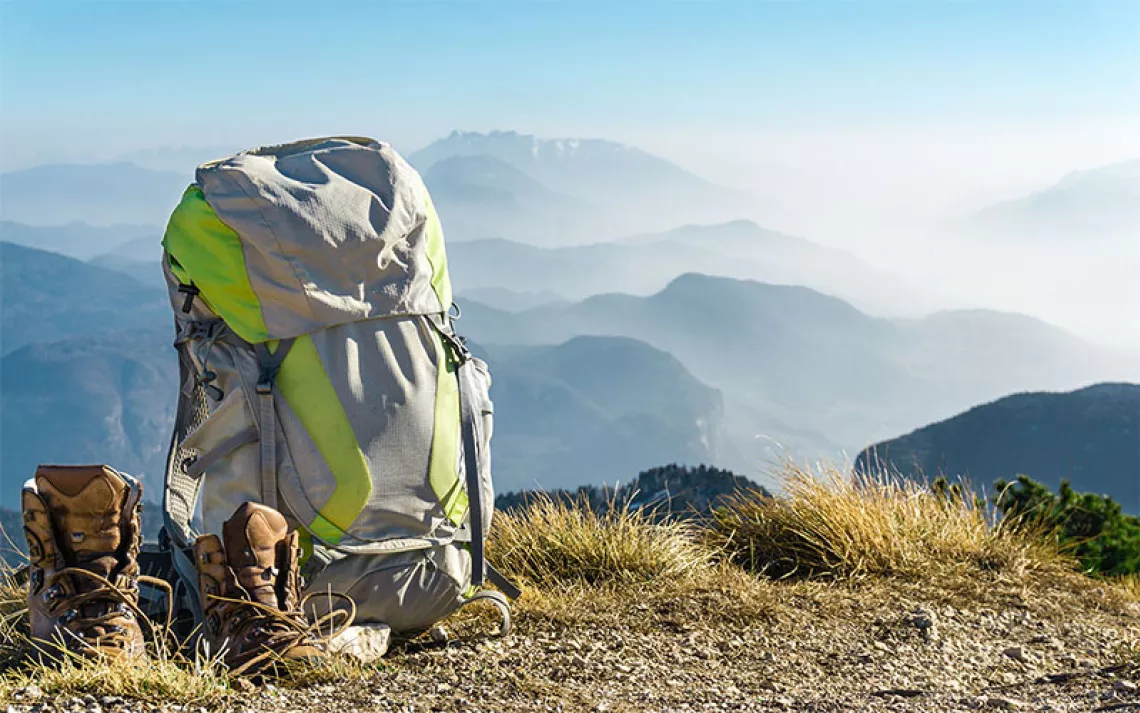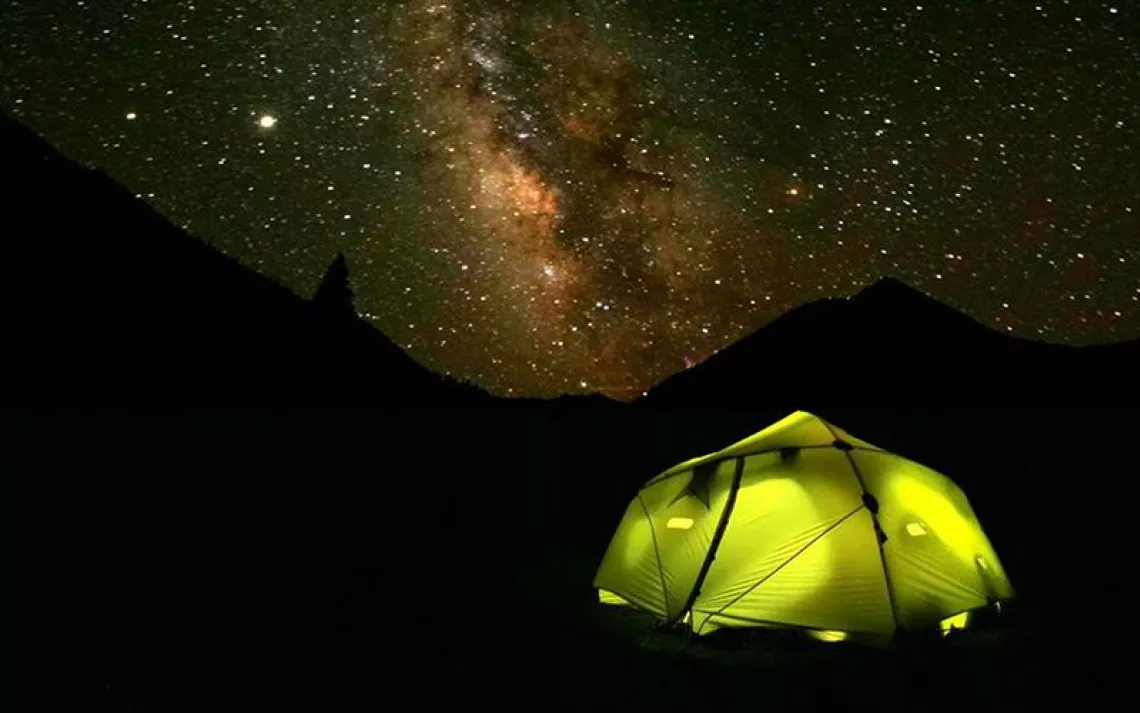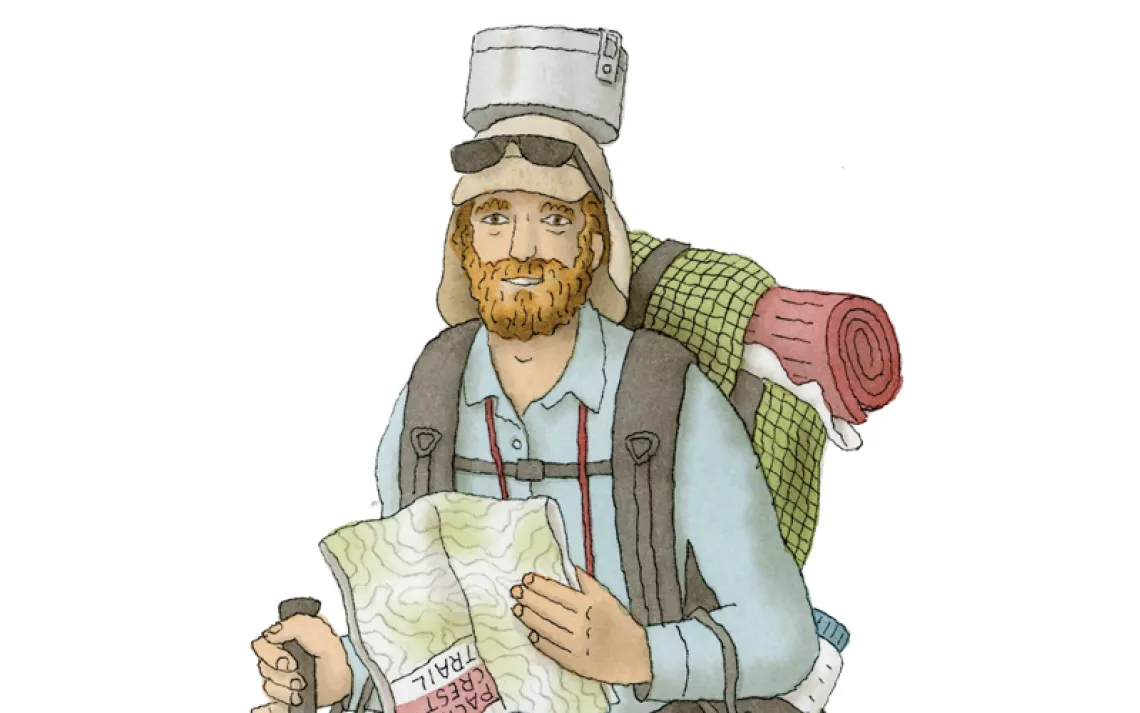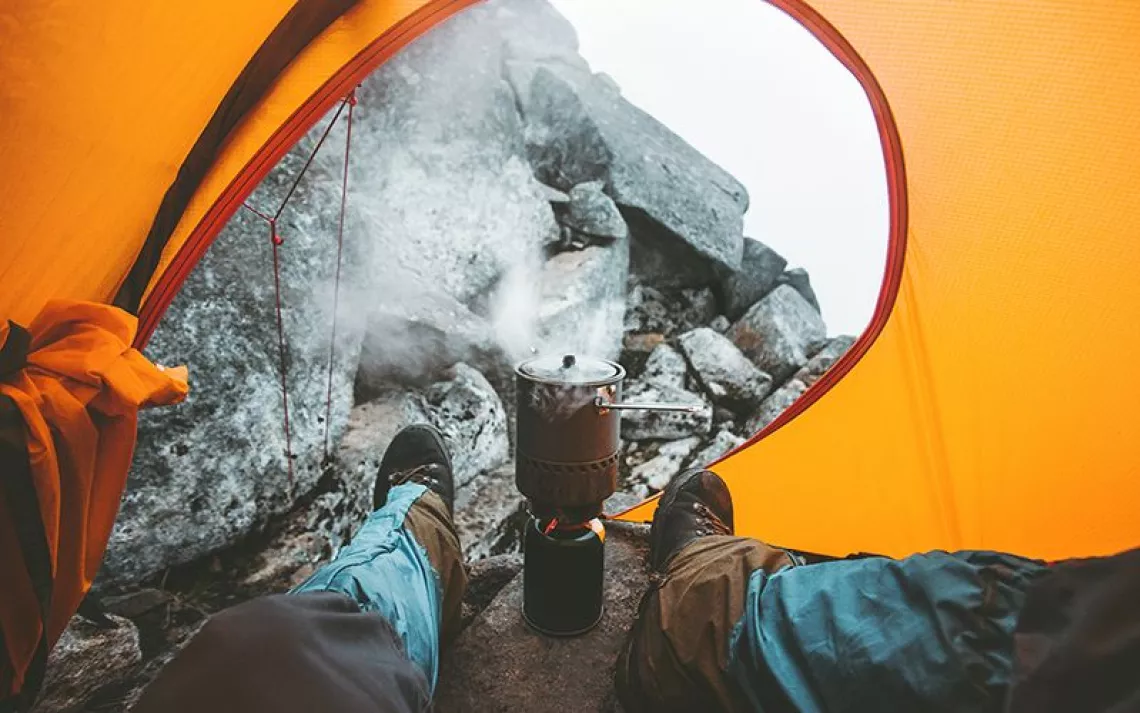Meeting My Mountain Dad
A writer reminisces about backpacking with her mercurial father
Back when I was seven, Dad took my then-12-year-old brother on his first hiking trip. Before they drove off to the Rockies, they posed for a photo. Rick wore his freshly laundered Boy Scout shirt and kerchief. His skinny frame pitched forward from the oversize pack on his back.

Dad and Rick returned from that weeklong hike with a string of smoked trout, Dad flashing a stubbly grin. Rick seemed OK enough at the time, but a long time passed before he went backpacking again.
After Rick left home for college, Dad’s drinking and bullying escalated. In the summer of 1969, when I was 15, he declared it was my turn to learn backpacking. Goosebumps rose on my arms, but I said OK because I’d never been taught how to say no.
He wanted to take me for a weeklong hike in the Sierra Nevada but couldn’t get the time off from his dead-end desk job at an aerospace firm. Instead, he settled for a weekend in the San Gabriel Wilderness, just outside our home in Los Angeles. I knew Dad loved backpacking. I was also starting to get a sense of how much he loathed his life. He constantly belittled my mother and me, and downed two martinis every evening before dinner.

I’d be on my own with Dad in the wilderness, nobody to buffer me from his moods. Yet I knew I couldn’t get out of this. Agreeing with Dad was fraught; refusing was unthinkable.
Soon I was trudging behind him up a leafy trail along the West Fork of Bear Creek, my brother’s hand-me-down pack on my back and worn-out Keds on my feet. Nikki, our spaniel mix, ran around us in circles, her black eyes sparkling. We hiked upstream for several hours, then Dad stopped at the water’s edge. As Nikki and I watched, Dad pulled something from his pack. For one wild moment, I feared it was a bottle of gin, but no. It was a collapsible fishing rod.
My hands went clammy. I knew Dad’s rule: “To eat fish, you catch 'em; you clean 'em.” I pictured tugging the hook from a flashing rainbow’s tender mouth and hacking off the head. Miraculously, Dad didn’t demand that I join him. I sagged with relief into the weeds beside the stream.

“There’s trout in that pool,” he said, gesturing to the water near us. “But to get 'em to bite, you put in your line above the fish, then let it drift down.” He threaded two pinkish salmon eggs on a tiny golden hook, then shot me a grin as he clipped polarized lenses onto his glasses. He headed well upstream of the pool so the fish wouldn’t startle.
Dad moved along the bank without snapping a single twig. This was a side of him I never saw before: zenlike, dancerly, calm. I marveled as he dropped his line with the red-and-white float into the water. As the float moved downstream, so did Dad.
No fish bit. Dad turned the handle on his metal reel, ticketa-ticketa, until the float hauled up out of the water. In a move both spare and elegant, he reached with his free hand and caught the line before his hook could snag on anything. He tacked the hook into the rod’s cork handle, then turned upstream again.
I watched Dad in amazement that afternoon. Usually when he tried to show me something, he began in a state of half-agitation. If his demonstration didn't go well, his face grew red, his eyes popped, and his voice rose. But here by the stream, his voice remained soft. When the fish wouldn’t strike, he didn’t default to petulance. He simply announced, “Welp, I guess they’re not biting here!” and we moved upstream to the next set of pools.

Eventually the fish bit. By the time the sunlight waned and the mosquitoes started buzzing, he’d caught our limit.
For dinner, Dad dredged the filleted trout in cornmeal, then sautéed them in a dab of bacon grease. I never knew him to cook anything besides weekend pancakes—and that was long ago—but the fish turned out perfectly crisp and flaky. We ate our fill, and Dad tucked the leftovers into his WWII mess kit and set it into the cool shallows of the stream. He placed a rock on its lid so it wouldn’t float away. We fell asleep under the stars.
Some time after midnight, Nikki startled us awake, barking furiously. Before we could get out of our sleeping bags, she took off, crashing through the underbrush. “Nikki, stop! Heel!” Dad roared, but she was already gone. Only the gurgling stream and the night insects replied.
“Daddy, what’ll happen to Nikki?” I cried, my sleeping bag twisted around my ankles. “How will she find her way back?”
“I dunno,” he murmured. “I’ve been in the mountains with lots of dogs. Somehow they always find their way. She may be back before sunup.”
Perhaps it was the unexpected calm in his voice or the shock of hearing him say, for once, that he wasn’t certain. Maybe I was just exhausted and overwhelmed, but I sank back into my bag and fell asleep almost immediately.
At dawn, I woke to Nikki snuffling into my neck. Her tags clinked as I swept her into my arms. Dad went down to the stream to fetch the leftover trout for a celebratory breakfast. He whooped and pointed to his mess kit. The heavy rock and the lid were cast aside. The kit was empty, polished clean. Around the kit, pressed into the damp earth, were perfect little raccoon tracks. Dad sat back on his heels and laughed. I did too.
Here at last was the father I longed for—rolling with the punches, laughing at his losses. But as we packed out that afternoon, the haunted look in Dad’s eyes returned. By the time he pulled our Buick into the garage, depression was riding shotgun.
At age 15, I knew almost nothing about alcoholism or mental illness. All I knew is that my Mountain Dad, who tiptoed by the stream and cooked tender trout and consoled me in the dark, was gone.
Two years later, Dad took me shopping—just that once, never again. He bought me a Kelty backpack and beautiful, dove-gray Pivetta hiking boots. We headed out on a weeklong pack into the Sierra Nevada. Rangers at the trailhead warned us we might run into a she-bear on the far side of the pass.
I didn’t care about the bear. I just hoped to run into my Dad again.
 The Magazine of The Sierra Club
The Magazine of The Sierra Club




